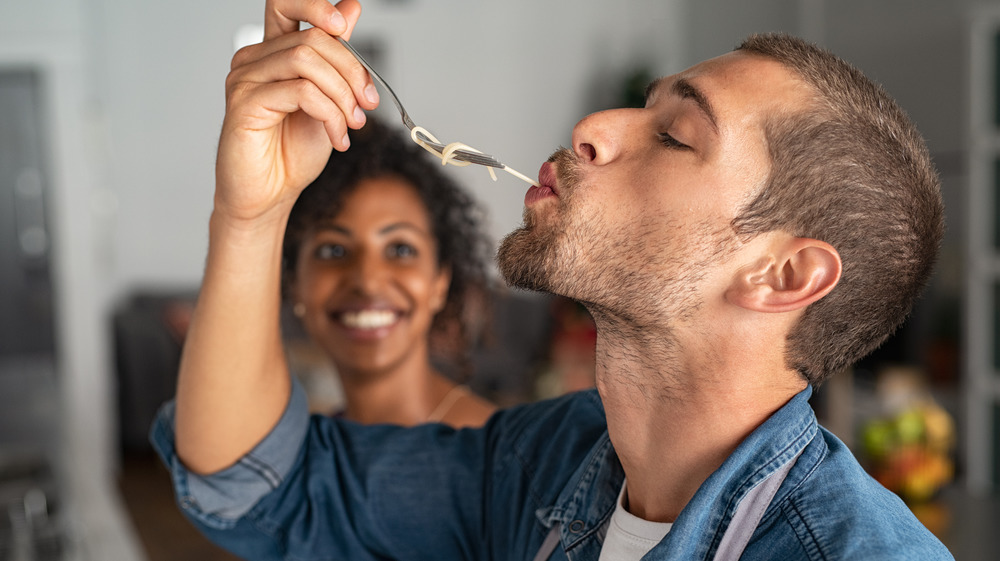Surprising Things That Can Change Your Taste Buds
People are born with thousands of tiny taste buds on their tongue and other areas inside their mouth (via Healthline). These taste buds are responsible for tasting the five primary flavors we experience: sweet, sour, salty, bitter, and umami. A number of factors can affect our taste buds and alter the way a person perceives taste.
A common cause of a change in taste buds is a bacterial or viral infection. In fact, loss of taste is a symptom of COVID-19 (via the Centers for Disease Control and Prevention (CDC). Other respiratory infections, including the flu and the common cold, can also alter your sense of taste. And certain medical conditions like multiple sclerosis, Parkinson's disease, Alzheimer's disease, gum disease, and cancer can change how taste buds work. Medications, such as antibiotics, blood pressure pills, and cholesterol-lowering drugs can have the same effect (via the National Institute of Aging). Nutrient deficiencies, nerve damage, smoking tobacco, and alcohol are other common causes of changes to taste buds. Finally, taste can change with age, as the number of taste buds a person has diminishes as they get older and the ones that are left become smaller and less sensitive. This can make it more difficult to perceive taste.
Can you repair damaged taste buds?
So if you are having issues with your taste buds, in most cases, there is good news! If a change in taste is tied to a medical condition, treating that condition should restore your taste buds. If your sense of taste does not return, seek medical care right away. If medications are to blame, your doctor may adjust or change your prescription to ease this side effect. Quitting smoking and decreasing alcohol intake can also help.
For more serious conditions like nerve damage, treatment may not fully restore sense of taste and will depend on the extent of the damage and the individual body's ability to repair itself. For people receiving cancer treatment, food may taste bad or "off," but will return to normal when treatments stop.
If you're having trouble tasting your food, adding color, texture, and spices may help. If foods you once enjoyed don't taste the same way, talk to your doctor. You may need to see an otolaryngologist, or an ear, nose, and throat specialist, who can help diagnose the problem. If you experience a sudden loss of taste that accompanies symptoms of a serious condition like head injury, mouth injury, or stroke, see a doctor right away.


